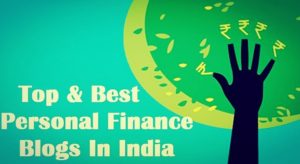Please use the sharing tools found via the email icon at the top of articles. Copying articles to share with others is a breach of FT.com T&Cs and Copyright Policy. Email [email protected] to buy additional rights. Subscribers may share up to 10 or 20 articles per month using the gift article service. More information can be
This week’s problem: What is the best option to launch a career in finance? My CV could be described as “pockmarked”. I attended a masters course in commercial real estate, but I did not complete the exams. Male, early 30s Jonathan writes: Finance is an attractive career choice when you look at the size, breadth and earnings of the industry. In the UK, there are about 1.13m jobs in the finance and insurance industry, according to the Office for National Statistics, and more than 2m finance-related roles in any sector. Roles range from financial director to book-keeper. The UK median annual gross salary (provisional figures) for all employees in “financial and insurance activities” is £36,250. By “finance” do you mean the finance industry or a financial role? It could be HR in an investment bank, or accountancy at a charity. In other words, you need to narrow your definition of finance. To help with that decision, think hard about your underlying motivation for the choice: salary, lifestyle, purpose, location will all be part of it. What elements of a role in finance will support your motivations? Turning to your CV, what can you learn about yourself from what you have done so far? It may be “pockmarked” because you are motivated by short-term projects, have experience in a wide range of industries, may have been forced to move on by external factors, or have been opportunistic in taking new positions that looked attractive. Such a CV could demonstrate transferable skills, whether from wide commercial experience, time out to travel, or community activities. It is worth trying to explain the choices and decisions you have made: it could give you insight into your strengths and interests, and will be useful and necessary for any application or interview. One of these decisions was dropping out of a masters course — what can you learn about yourself from that choice? Had you done enough research into the course or the industry before starting? Why did you think you would need a masters degree? Were you trying to fit academic work around other activities? While a career in finance may be the answer, perhaps the question is based on the imprecation carved into the temple of Apollo at Delphi — know thyself — or more specifically, what are your strengths and what roles do you find rewarding? The follow up question is: what roles play to these strengths that are worthwhile and financially rewarding? This might be the chance to follow your dream, applying financial skills in an industry you love. FT readers respond: [The] industry isn’t that great. There is more to life than attractive pay. If you are still dead set on getting in, the greatest advice is that people currently in the industry are no better than you. But your background does mean some people won’t take you seriously. So find ways to make yourself more credible. LifeSensei Apply for a graduate programme — or look for entry-level roles — and you’ll move around the business. Get a qualification — ACCA, CIMA, CFA, CISI — and apply to a relevant role. Contact a recruitment agency or tap into your existing network of contacts for advice and leads. Young Contrarian If you just want a foot in the field, with your background, I would suggest you start with back-office type jobs. For this I would go to finance-focused discussion boards. Front-office jobs, if that is your aim, are extraordinarily hard to crack and require a different set of skills, experiences, network and a good dose of luck. Ayesha Khan Learn to flannel better than your rivals. The Annon Next problem: I worked in marketing for 15 years before doing a PhD. Now that I’m trying to return to the IT industry, employers say I’m over qualified and have been out of work for too long. How do I find a job?
source:-ft



